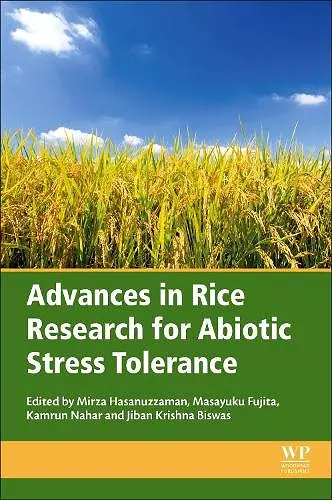Advances in Rice Research for Abiotic Stress Tolerance
Understanding and Mitigating Environmental Challenges in Rice Cultivation
Kamrun Nahar editor Jiban Krishna Biswas editor Mirza Hasanuzzaman editor Masayuki Fujita editor
Format:Paperback
Publisher:Elsevier Science Publishing Co Inc
Published:14th Nov '18
Currently unavailable, and unfortunately no date known when it will be back

This book offers essential insights into improving rice yield by addressing abiotic stress factors, making it a valuable resource for researchers and agricultural practitioners.
The book Advances in Rice Research for Abiotic Stress Tolerance serves as a crucial resource for understanding the various environmental factors that can adversely affect rice yields. Given that rice is a staple food for nearly half of the global population, addressing these challenges is vital, especially in light of anticipated population growth. The text delves into the myriad abiotic stresses that rice plants face, such as extreme temperature fluctuations, drought conditions, hypoxia, salinity, and issues related to heavy metals and nutrient imbalances.
In addition to outlining the challenges, Advances in Rice Research for Abiotic Stress Tolerance explores innovative methodologies aimed at mitigating these stresses. The book emphasizes the importance of developing stress tolerance in rice, which is essential for maintaining and enhancing crop yields. It presents current research findings and practical approaches that can be adopted by agricultural scientists and practitioners alike.
As a comprehensive reference, Advances in Rice Research for Abiotic Stress Tolerance equips readers with the knowledge necessary to tackle the pressing issues of rice cultivation in a changing environment. By addressing both the recognition and management of abiotic stresses, this book is a valuable tool for anyone involved in rice research and production, ensuring that this vital food source continues to meet global demands.
ISBN: 9780128143322
Dimensions: unknown
Weight: 1930g
986 pages